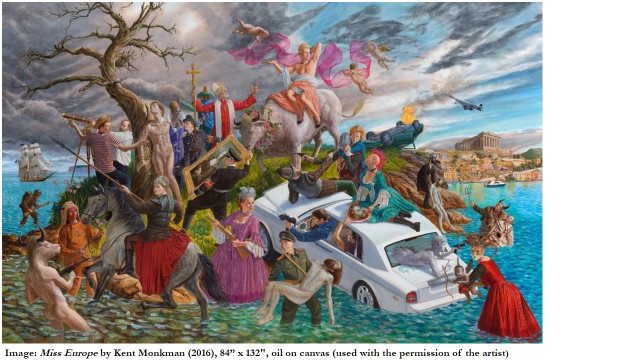Rhizomizing the Translation Zone: Xiaolu Guo and A Concise Chinese-English Dictionary for Lovers
DOI:
https://doi.org/10.21992/tc29387Keywords:
translation studies, Chinese Literature, Xiaolu Guo, Queer StudiesAbstract
In a world marked by increasing linguistic and cultural mobility, translation has gone way beyond the idea of mechanical/cultural transmission of meaning and saturated our everyday life. Translation zone, as one of the many spatial metaphors for translation, is proposed by Emily Apter and meant to debunk the myth of monolingual complacency as a norm and to highlight translation as a significant medium of subject re-formation. Although her transcoding model is path-breaking, Apter seems to insist on the intersubjective limits that resist translation, arguing about the issue of border trouble arising from occasions “where the lines dividing discrete languages are muddy and disputatious” (129). In this paper, I argue that the translation zone shall be reconceptualized as a rhizomatic zone, where both translation and mis-/non-translation constitute an adventitious mode of transformation that highlights processuality. In order to add this Deleuzian layer to the translation zone, I examine how translational literature, which “straddle[s] two languages, at once foregrounding, performing, and problematizing the act of translation” (Hassan 754), reflects a perpetual state of in-translation and encompasses the process of flight and movement. Specific examples are drawn from Xiaolu Guo’s novel A Concise Chinese-English Dictionary for Lovers, which features a narrative characterized by malapropism, mis-hearings, mis-interpretations, and interlanguage. Incorporating translation as a constitutive element into her story, Guo highlights the interplay between linguistic creativity and (un-)translatability, complicates the process of cultural transfer, and underlines the centrality of migration and porosity which Apter fails to attribute to her framework. The novel, therefore, mimics a rhizomatic translation zone, where migration, transformation, and linguistic heterogeneity are enmeshed.Downloads
Published
Issue
Section
License
Authors who publish with this journal agree to the following terms: a.Authors retain copyright and grant the journal right of first publication with the work simultaneously licensed under a Creative Commons Attribution License that allows others to share the work with an acknowledgement of the work's authorship and initial publication in this journal. b.Authors are able to enter into separate, additional contractual arrangements for the non-exclusive distribution of the journal's published version of the work (e.g., post it to an institutional repository or publish it in a book), with an acknowledgement of its initial publication in this journal. c.Authors are permitted and encouraged to post their work online (e.g., in institutional repositories or on their website) prior to and during the submission process, as it can lead to productive exchanges, as well as earlier and greater citation of published work (See The Effect of Open Access).



